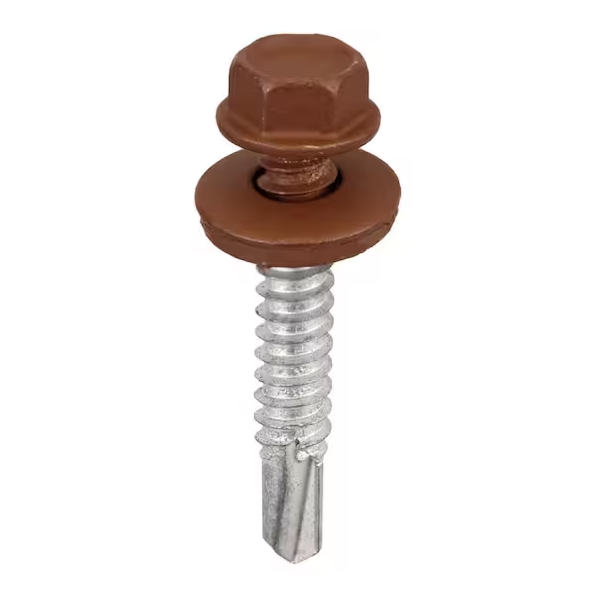#6 drywall screw dimensions quotes
Understanding 6 Drywall Screw Dimensions and Specifications
When it comes to construction and home improvement projects, selecting the right fasteners is vital for ensuring structural integrity and achieving a professional finish. Among the various types of screws available, the 6 drywall screw stands out due to its specific dimensions and applications. In this article, we will delve into the dimensions and characteristics of 6 drywall screws, their uses, and tips for choosing the right one for your needs.
What is a 6 Drywall Screw?
The designation “6” refers to the screw’s diameter, which is approximately 0.138 inches (or about 3.51 mm). Drywall screws are specially designed for fastening drywall sheets to wooden or metal studs. Unlike regular wood screws, drywall screws have a bugle-shaped head that allows them to sink into the surface of the drywall without tearing the paper, thereby providing a smooth finish.
Dimensions of 6 Drywall Screws
The dimensions of 6 drywall screws can vary in terms of length and thread type. Generally, these screws can range from 1 inch to 3 inches in length. The length you choose will depend on the thickness of the materials you are fastening. Common lengths for 6 drywall screws include
- 1 inch Often used for half-inch thick drywall. - 1.25 inches Suitable for half-inch drywall with a slightly thicker backing. - 1.5 inches Frequently chosen when fastening to thicker materials or double-layered drywall. - 2 inches and 2.5 inches Used for thicker drywall or specialized applications.
In addition to length, the type of threading on the screw also plays a crucial role. Drywall screws typically feature coarse threads that grip securely into wood and fine threads suitable for metal studs. The choice of thread type enhances the holding power of the screw, ensuring that the drywall remains securely fastened to the underlying structure.
Materials and Coating
#6 drywall screw dimensions quotes

6 drywall screws are made from various materials, with steel being the most common due to its strength and durability. Some screws may come with a coating, such as zinc plating or black phosphate, to enhance corrosion resistance. This is particularly important in areas that may be exposed to moisture or other harsh conditions. Coated screws are essential when working in bathrooms, kitchens, or outdoor settings, as they help prevent rust and ensure a long-lasting hold.
Uses of 6 Drywall Screws
The primary use of 6 drywall screws is for fastening drywall to studs. However, they can also be used in other applications, such as
1. Sheathing Attaching plywood or OSB (oriented strand board) to framing. 2. Furring Strips Fastening furring strips for lath and plaster walls or for creating a surface for attaching drywall. 3. Repairs Replacing or repairing sections of drywall, especially after damage from moisture or impact.
Tips for Selecting 6 Drywall Screws
Choosing the right 6 drywall screws involves considering several factors
- Length Always ensure that the screw length is appropriate for the thickness of the drywall you are using. A screw that is too long may penetrate too deeply and damage electrical wiring or plumbing behind the wall. - Thread type If you are working with metal studs, opt for fine-thread screws. For wood, select coarse-thread screws to maximize grip. - Coating For high-moisture areas, use screws with corrosion-resistant coatings to prolong the lifespan of your installation.
Conclusion
6 drywall screws are an essential component in the construction and remodeling industry, offering reliability and strength for various applications. Understanding the dimensions—diameter, length, and thread type—of 6 screws is crucial for ensuring a successful project. By selecting the appropriate screw type and verifying that it meets the specifications of your project, you can achieve a flawless finish that stands the test of time. Whether you are a professional contractor or a DIY enthusiast, having the right fastening tools at your disposal will facilitate better workmanship and enhance the quality of your projects.
-
Top Choices for Plasterboard FixingNewsDec.26,2024
-
The Versatility of Specialty WashersNewsDec.26,2024
-
Secure Your ProjectsNewsDec.26,2024
-
Essential Screws for Chipboard Flooring ProjectsNewsDec.26,2024
-
Choosing the Right Drywall ScrewsNewsDec.26,2024
-
Black Phosphate Screws for Superior PerformanceNewsDec.26,2024
-
The Versatile Choice of Nylon Flat Washers for Your NeedsNewsDec.18,2024










